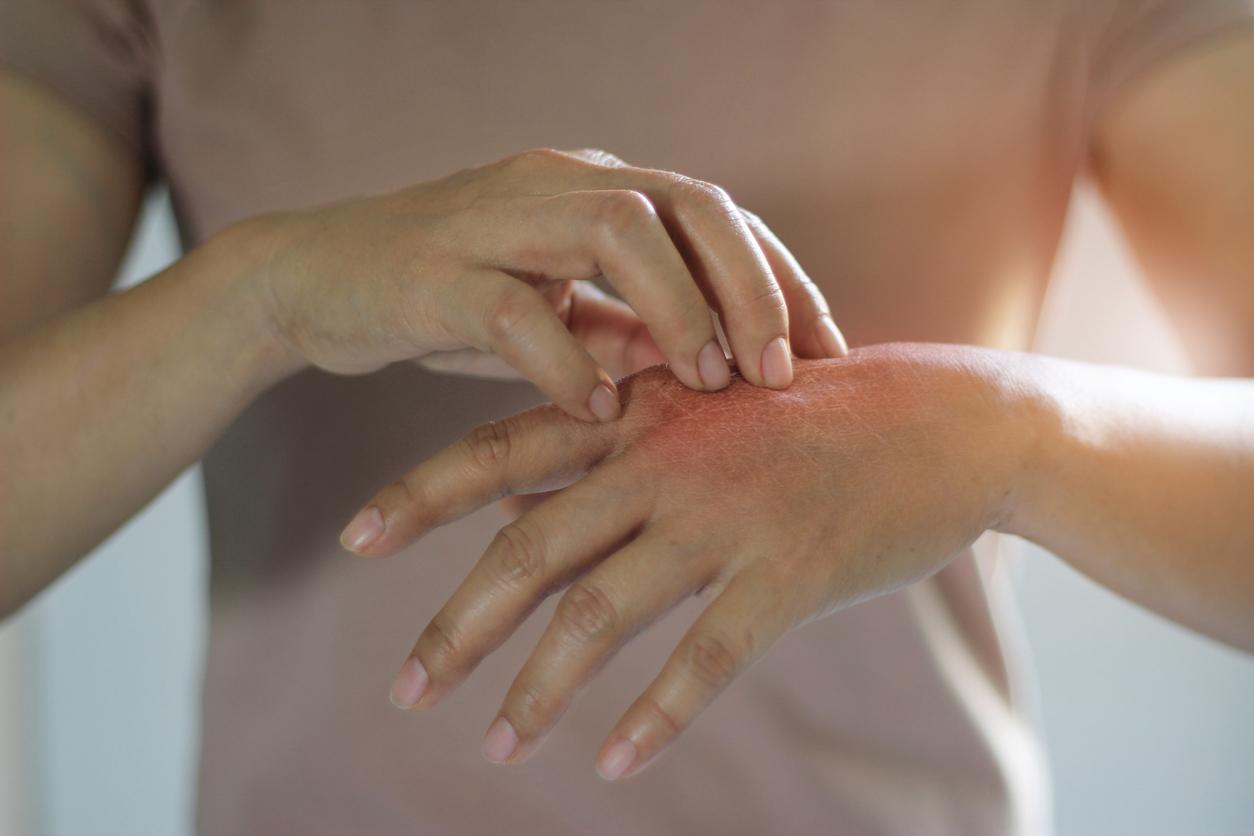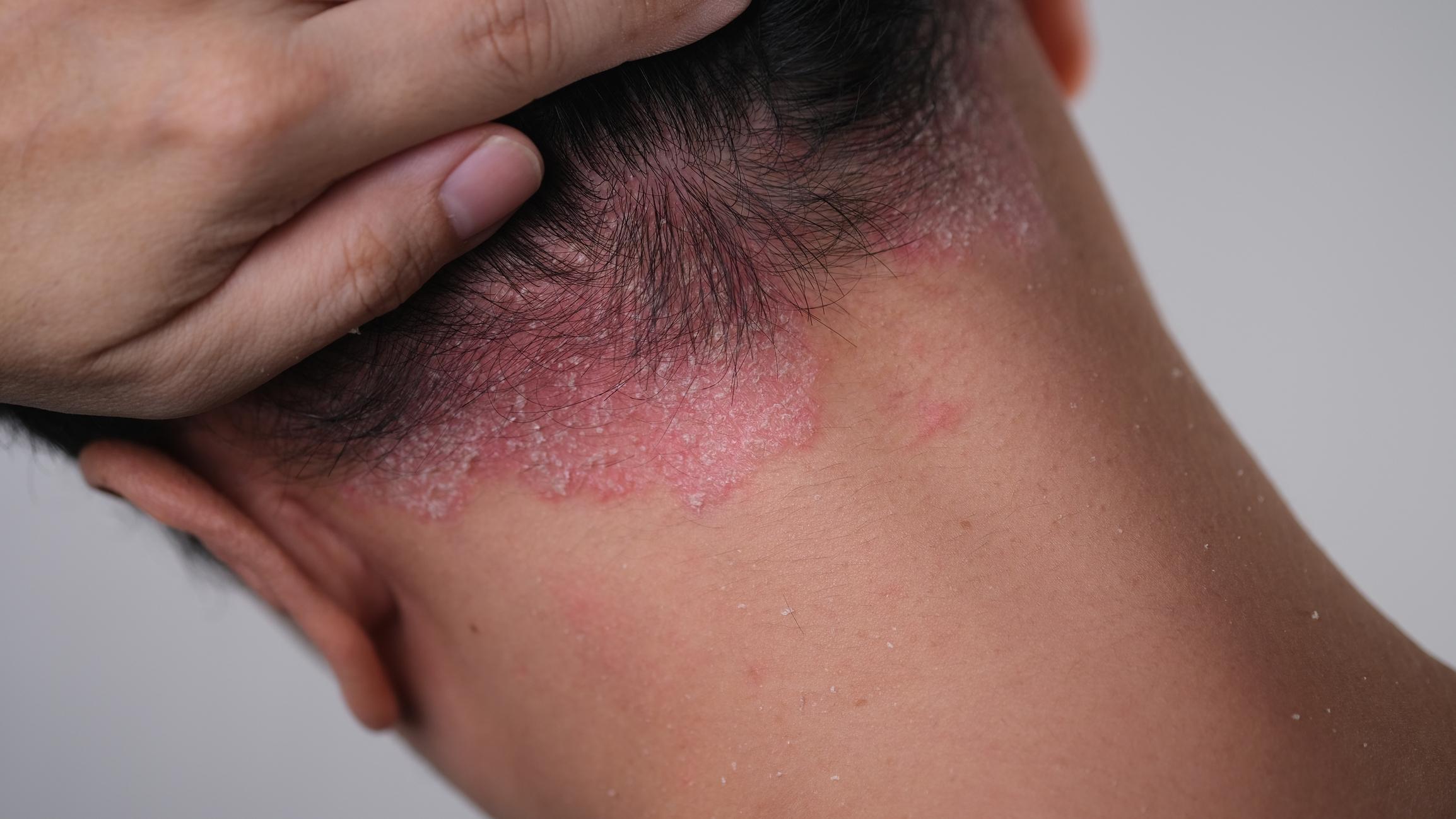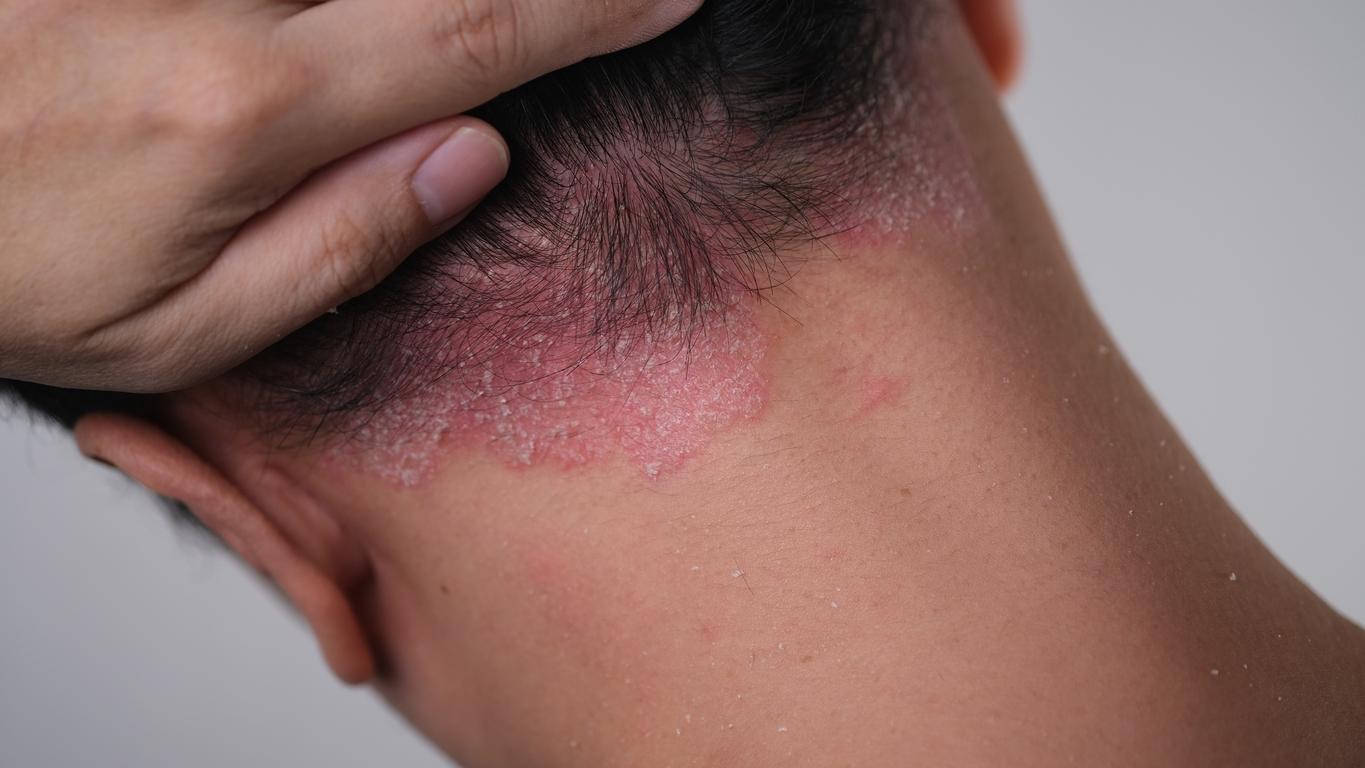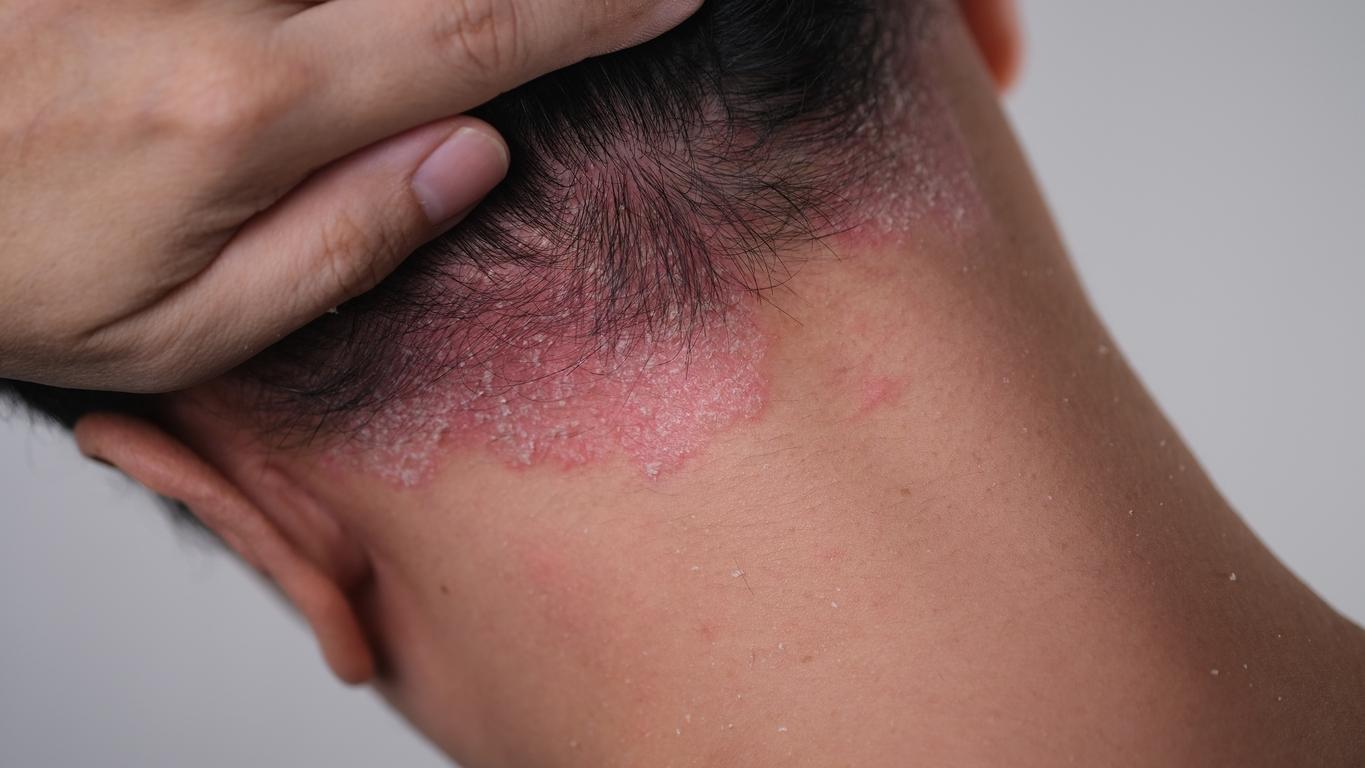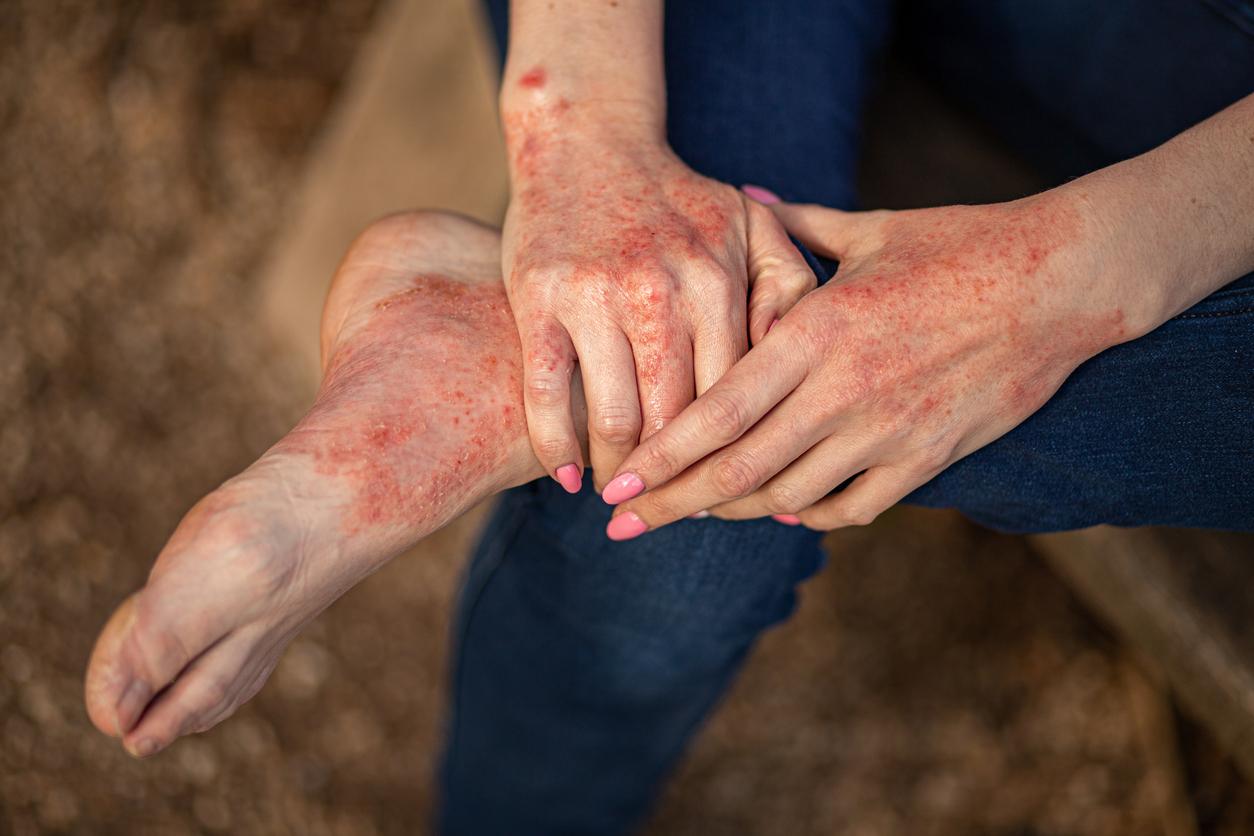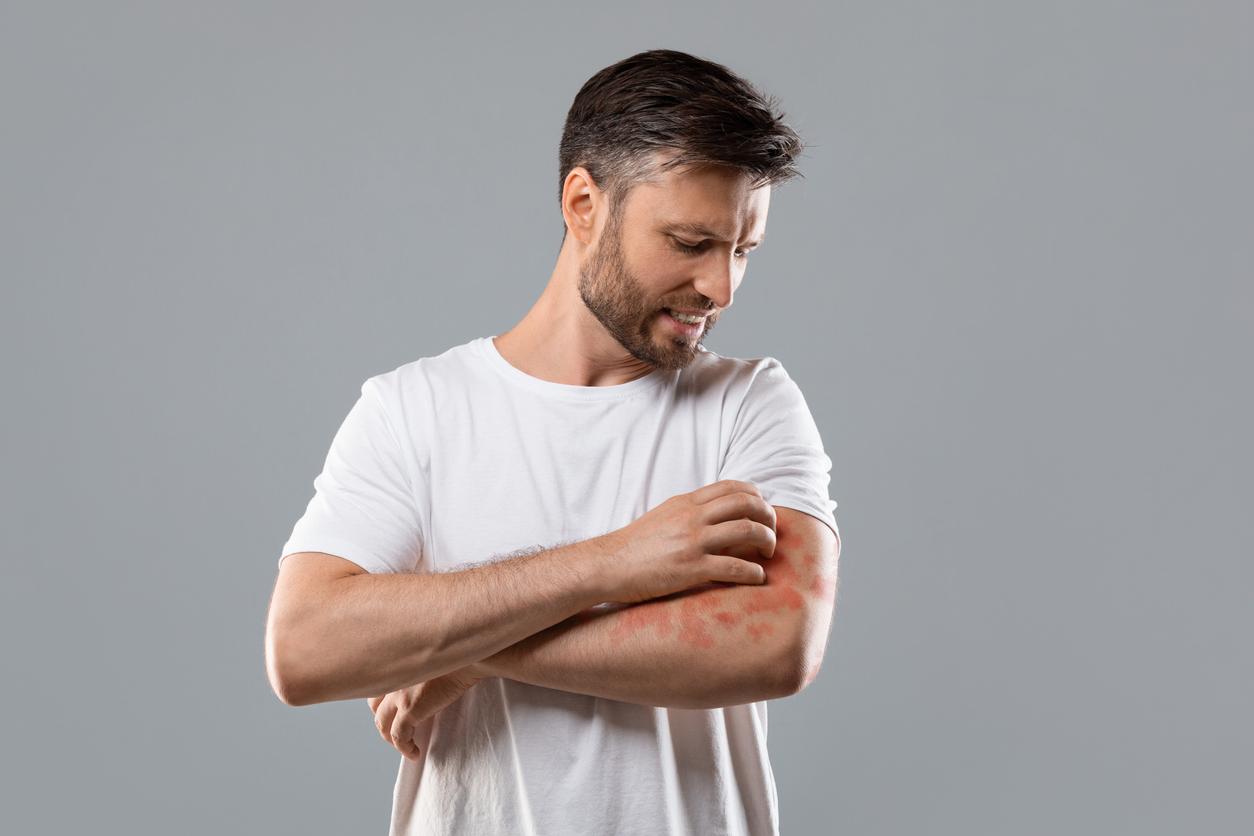Almost 2% of the population suffers from psoriasis, a skin disease that most often appears between the ages of 15 and 30 but can also appear after the age of 50. “It is an “autoimmune” disease, revealing a dysfunction of the immune system. Some skin cells renew themselves too quickly and too strongly, which leads to plaques and flaking,” explains Prof. Carle Paul, head of the dermatology department at the Toulouse University Hospital. Slightly more than half of the patients suffer from mild psoriasis, a good third from moderate to severe forms, the others from very severe forms with at least 20% of the body surface affected, annoying itching, rheumatic pain. It is to them that the new therapies are addressed.
Drugs that target inflammation
Cortisone creams, phototherapy (exposure to UV rays) and ciclosporin derivatives are the usual treatments. “We use them one after the other depending on the stage of the disease, the age and the lifestyle of the patient,” explains Prof. Paul. But psoriasis is sometimes resistant to treatment. A product that works well can suddenly turn out to be completely ineffective. Hence the hopes placed in new molecules that target inflammation at different levels.
After anti-TNF alpha (a class ofanti-inflammatories), biotherapies based on interleukins are being tested. Among them, brodalumab (interleukin 17) which binds to specific cell receptors, thus blocking access to substances that trigger inflammation. According to the results presented at the congress by Dr. Mark G. Lebwohl of Mount Sinai Hospital in New York (USA), out of 1881 patients, almost half (44%) noticed a whitening of their plaques after twelve weeks of treatment. The others saw significant improvement. This medicine requires an injection every two weeks and it can induce side effects (joint pain, headaches…). But “the doses prescribed and the frequency of injections will be personalized according to the history of each patient, his illness and his state of health”, underlines Professor Paul.
Injections for severe forms
“One of our members in Nice called us to praise the rapid action of the drug. After six months, he who suffered from severe psoriasis no longer has any plaque. But we are waiting to see because we know that in the long run, the effectiveness can run out of steam”, nuance Dalida Sid-Mohand, director of the France Psoriasis association. “If we include the other drugs of this same family currently under study, 20,000 patients have been treated without any major problems ofintolerance notes Professor Paul. Be patient, you have to wait a few months before they are available on the market…
Testimonial: “We expect more”
Bénédicte Charles, President of the France Psoriasis Association*
Any new drug should be encouraged. The most affected among us particularly need it. But we regret that research and laboratories mainly invest in the heaviest cases. We would also like there to be new molecules for mild psoriasis because patients suffer too!
*National hotline: 01 42 39 02 55. More info on www.francepsoriasis.org
Thanks to our expert, Professor Carle Paul, head of the dermatology department at the Toulouse University Hospital.
>> To read also:
Psoriasis: patients still victims of discrimination
Skin diseases: is the sun good?
Allergies: when the skin reacts













